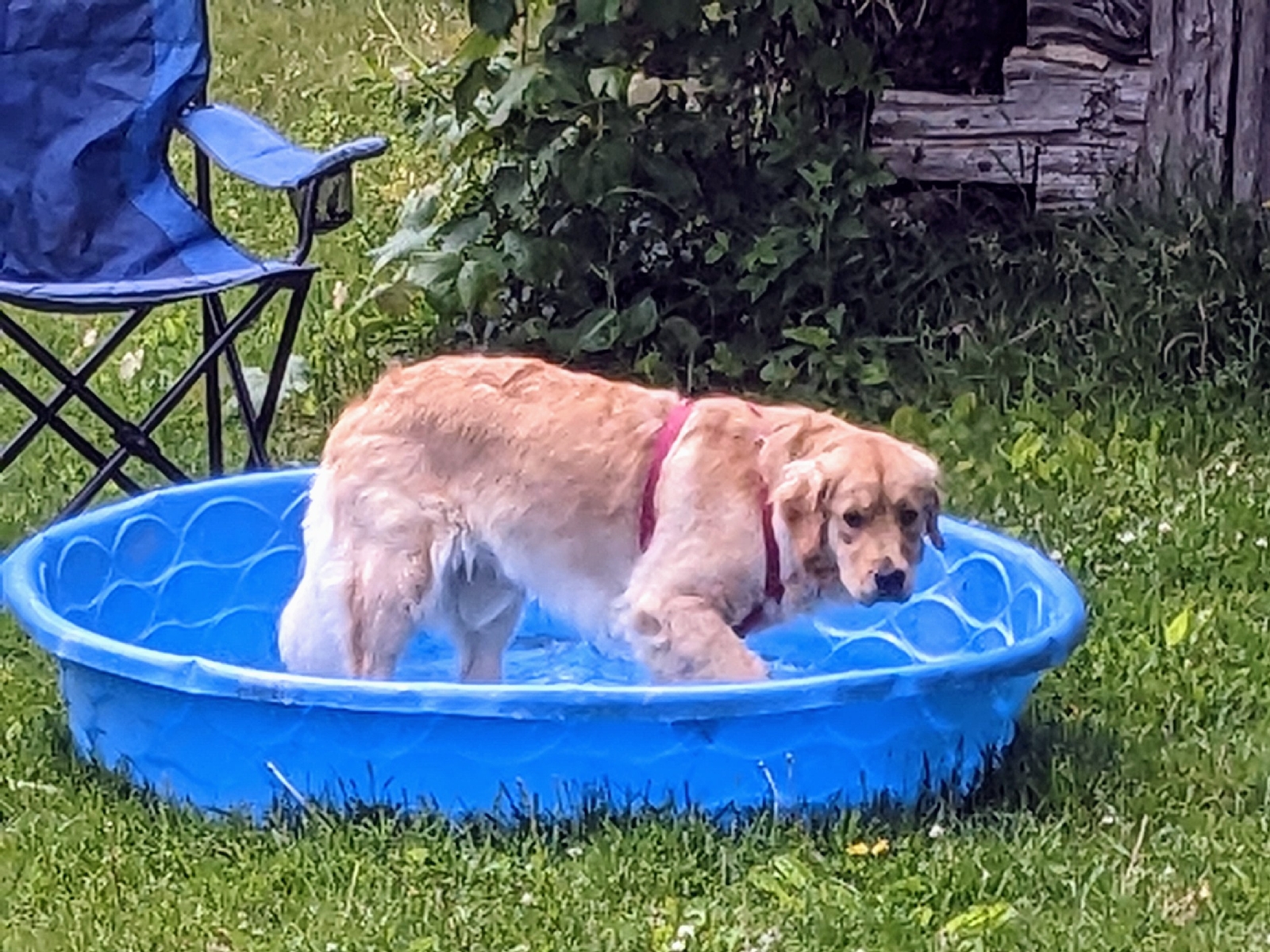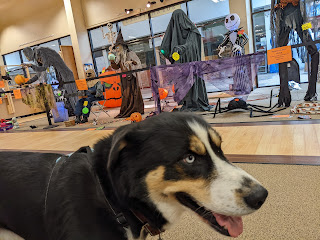Impulsiveness and Forgetfulness in Adolescents
Impulsiveness during a "fear stage" is almost always a huge sign that our dog is going through the brain changes that occur. Some people think of this in terms of impulse control and some people call this self regulation.As young kids, pretty much all of us have done a Dot-to-Dot at some point in our schooling. That is the easiest way to think of how this stage impacts our dog's brain. As an elementary student we might start with a dot-to-dot that goes from 1-10 and slowly build up to a dot-to-dot that counts by 10's and goes into the hundreds. As we move up through our education those dot's change or become more complex but they still follow a specific pattern according to the rules of the educational subject we are focusing on.
Now imagine that you are handed a dot-to-dot that is in a language you don't understand or the rules that dictate the order of connecting those dots is not given to you. This is exactly what is happening in our adolescent and young adult brains as they are going through a fear period. This causes them start missing some of the dots. They might get 1-3 in the right order then suddenly jump to 7 or 8 and finish in the right order, or miss any step along the way of a previously well known behavior chain.
This is another common place where we, as humans, like to stick a label...my dog is being stubborn, doesn't want to listen, is being a jerk, is making bad choices, etc. There is really a big movement in the dog training industry to avoid labelling dogs in this fashion because the label helps other people to understand what the dog is doing, but it rarely changes the behavior of the dog or teaches the dog how to make better choices. This can often lead to more harm then good!
Science has shown us that a dog's brain previous to the fear stage might have dots that go in order of 1, 2, 3, 4. Then after the stage the wiring changes completely and the dog might go from 1 to 3, 4 completely skipping one part of the brain. Once the fear stage is over we can repair or reconnect the dots but during the fear stage, our dogs really are not in control of their impulses and can't control their actions the way we think they should or even the way they previously could. This means our dogs that are in fear stage will really struggle with impulse control especially when anything even slightly exciting is happening. Poor habits like pulling on the leash to reach something or counter surfing often become more intense in this period of life. And it's not our dog's fault as their brain simply can't control itself. This means we have to implement our very best management techniques such as blocking of the kitchen or not leaving anything on surfaces the dog can reach that the dog might want to steal. The more our dogs practice these behaviors that we don't appreciate, the more they learn that the behavior is a great way to be self-reinforcing.
Forgetfulness
Forgetfulness during a fear stage starts with the rewiring of the dog's brain, connecting the dots, but also moves into reinforcement challenges that often arise during this time.
Part of the reason our impulsive adolescents seem so forgetful is the flood of hormones that happens so rapidly at this stage. The hormones related to procreation run rampantly at this time in unaltered dogs. Even altered dogs struggle with rapid increases in cortisol, adrenaline and dopamine. Their brain simply isn't equipped to deal with this yet. They often can't tell if another dog is friendly or not yet so becoming "reactive" due to fear or over-excitement is very common.
At this stage your dog is now "Large & In Charge" when faced with distractions. Barking & lunging become the norm leaving many dog owners wondering what happened to their adorable puppy. Owners often struggle to stay in control of their dog and their own emotions as it seems that everyone must be looking at how awful their dog's behavior seems.
This is often when the stronger tools come out based on correcting the dog when they act like a fool. Owners try these as an attempt to safely keep their dog from dragging them down the street. Many owners feel remorse for using such harsh tools, yet they simply don't see another way to keep everyone safe.
But there is another way to keep everyone safe and avoid punishing your dog for doing exactly what nature has designed the brain to do!
This simple answer is Do Nothing!
But that doesn't really explain it the right way. We need to remember that the adolescent stage doesn't last forever. The brain will eventually sort itself out into an adult brain capable of making rational decisions. By "do nothing" I mean stop asking your dog to try new things, go in busy or over-stimulating environments, and be social butterflies. Instead here is a list of things to do:
Take walks in quiet places at odd times of day when the environment is calmer. Try "Go Nowhere" walks or ""See No One" walks.
Play with trusted friends that share play styles for safe social experiences.
Try to avoid any major life changes during this time as possible! This isn't always possible so if there is a big change, be sure to provide lots of extra stress relieving enrichment.
Work on fun, teamwork based training and games that help keep the relationship between you and your dog strong...parkour, agility, nosework, etc.
We have a lot more info on this struggle filled adolescent stage! Check out the Crazy Canine Adolescent Classroom, Helping Distracted Dogs Workshop, Helping Fearful Dogs Feel Safe Workshop and other great activities offered by Yooper Paws of Love.
Understanding Adolescents Series





No comments:
Post a Comment